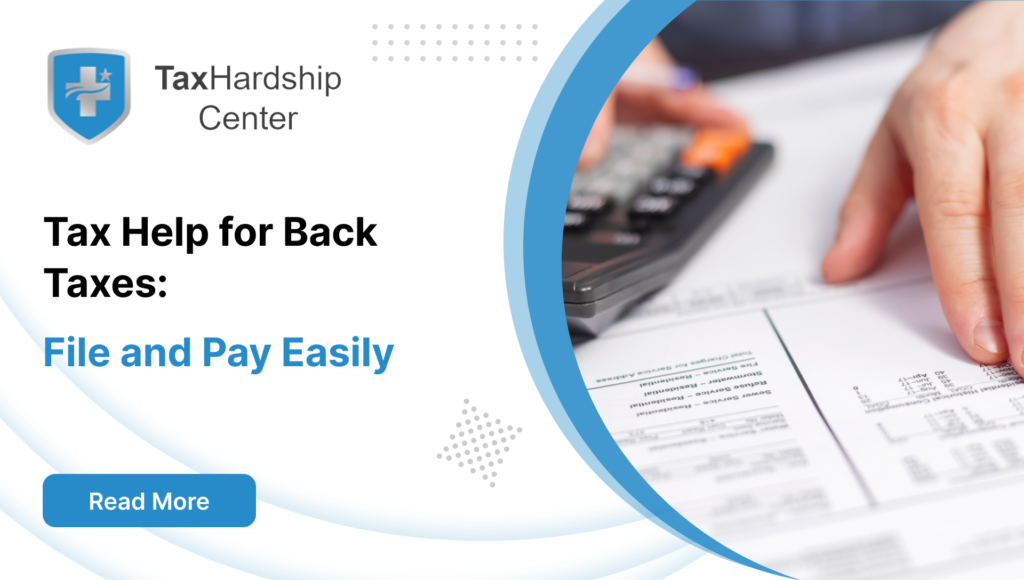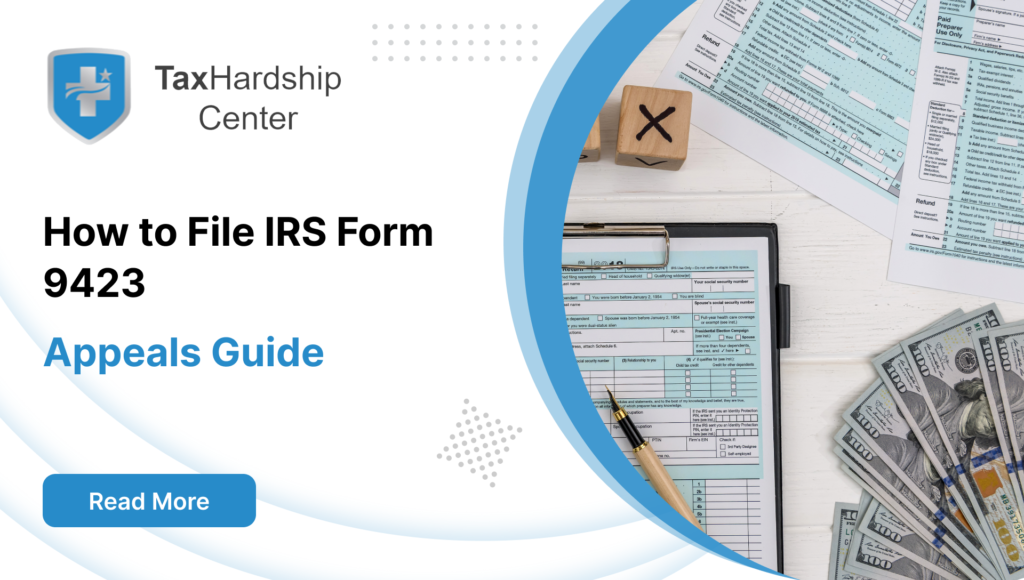Tax is one of the most essential financial tools of the government to run a country. Tax collection is therefore necessary for every government to work for the welfare of its citizens only. However, the problem arises when any taxpayer fails to meet the tax amount they are intended to pay.
Such cases result in many legal and financial problems for the taxpayer as the government takes legal action through its authority bodies. The Internal Revenue Service (IRS) is the authority body that handles all tax-related matters by keeping track of taxpayers’ tax records and addressing them or taking action against those who fail to pay taxes at the end of every financial year.
In this article, we shall discuss tax-related problems and understand specific tips to efficiently manage our tax debt stress and get federal tax debt help.
What is the Internal Revenue System (IRS)?
Before understanding more about taxes and how back taxes work, it is essential to understand the IRS and how it works in clearing the tax debts for the government. The Internal Revenue Service (IRS) is an authority body by the government of the United States that deals with the issue of back taxes and their repayment and also keeps a track record of all taxpayers.
They are one of the most influential organizations working under the government and helping taxpayers meet their tax obligations. They are entitled to take legal action and pose financial stress to an individual if any individual fails to clear off the back taxes after regular warnings through mail or messages by the IRS. Thus, the IRS also helps in the proper functioning of the government.
What Causes Tax Debt?
Now let us understand some of the reasons that result in causing tax debt situations for individuals. The below pointers shall talk about the situations:
Wrong filing
One of the most common issues that results in the initiation of tax debt situations is due to the cause of wrong tax filing. This situation happens when taxpayers must report the exact amount of their income and the various income sources. The improper filing can easily be rectified by reporting this to the IRS and paying the remaining tax amount at the earliest.
Underreporting
The wrong filing of taxes is an error that could be intentional or can also happen unintentionally. If done intentionally, that situation is known as underreporting the tax file.
Underreporting means that a person has deliberately filed wrong tax returns to give less tax to the government instead of less income or income sources. Underreporting taxes is a serious crime and can result in different legal actions, and individuals can even face severe penalties.
Failing to file
If a person fails to file their tax information and returns by the end of every financial year, then that situation is known as tax failure of filing and can result in facing back taxes as well. In such situations, if done deliberately, one can face severe consequences. If not done intentionally, one can plead to the IRS to stop taking any legal actions and pay the tax amount due at the earliest within the stipulated deadline.
IRS audits
IRS audits are also one-way individuals can face the consequences of back taxes. IRS audits can be very random, as they pick up any file randomly and check all the income sources and tax returns filed, and if they notice something suspicious, they immediately take action.
On the other hand, IRS audits can also be pre-planned, as they can wait for a suitable time to grab any individual who has been scamming taxes and not filing returns. IRS officers straightaway come to the office or house of the individual and start pulling out the records without any prior notice. This process is mainly followed to catch hold of scammers or fraud people.
Financial struggles
An individual can also face back taxes if they fail to repay the tax amount pending due to their financial circumstances. This can be a real everyday issue for businesses and new startups after facing a huge loss.
Therefore, if any particular individual can show their proof of innocence and that they are facing financial problems and cannot repay the taxes within the stipulated time, then the IRS shows mercy in such cases as they have tools and specific policies that can come handy to people facing such financial issues. Policies like Offer in Compromise (OIC) or installment payment methods can be declared with the IRS, which favors the person facing financial issues and problems.
The Consequences
Now that we have come to know the typical reasons that result in causing tax debts, let’s have a quick look at the consequences of tax debt.
Penalties
The first and foremost consequence of facing tax debt is the penalties that will be imposed. If the tax debt still needs to be cleared on time. Penalties are not charged at the first go itself; an individual is given an extended period to repay the taxes and clear all the tax debts. But when, even after repeated warnings and notices from the IRS, someone fails to do so, heavy penalties are imposed on the individual.
Legal actions
Legal actions are imposed when there is a severe breach of tax repayment, and the individual has done some wrong deeds through intentional underreporting or through negligence in solving the tax issues. Legal actions are stringent, and individuals may also serve sentences in jail. This causes a lot of mental stress and anxiety for any taxpayer.
Tax liens
Another intense pressure situation that arises on the failure of tax payment is tax liens. Tax liens mean the government has the authority to seize all types of individual assets, from personal assets like properties to financial assets such as stocks, bonds, etc.
Tax lien situations are very stressful as a person is sometimes homeless due to such cases, as the government takes hold of assets to recover the tax debt amount. Such situations are rare but may happen in cases of serious tax debt.
Wage garnishment
Another process of recovering the tax amount by the IRS is through wage garnishments. The IRS directly cuts a particular portion, which would be ideal to recover the tax amount from a person’s salary. They are entitled to do so in cases of tax payment failure, which can result in poor financial conditions for a person.
Tips to Manage Tax Debt Stress
There are several ways to manage tax debt stress and get federal tax debt help. We shall understand about them in the following pointers:
IRS policies
As told previously, the IRS has specific policies such as the OIC and installation payments, which individuals facing back taxes can avail of and return the pending tax amount at the earliest.
OIC means the tax amount will be reduced based on certain conditions, and a person can repay the remaining amount in one go or installments. Installment payments are another way of clearing back taxes, as the IRS gives the right to clear off taxes within a stipulated time in the form of an installment and not in one go.
Consultation
It is always better to consult tax professionals beforehand to avoid such tax debt situations. Professionals or agencies experienced in handling back taxes are experts, and they know the exact way of dealing with the IRS.
They can help keep a person updated regarding the changing tax policies, assist in properly filing tax returns, and fight over legal matters and penalties.
Contact IRS
If facing such issues of tax debt, one must immediately inform or contact the IRS authorities and ask for ways to clear the tax debt in favor of the person’s situation. This shows that your intentions are clear and that the person has the will to clear off any tax debts through the different IRS policies, and therefore, stressful tax debt situations can be avoided.
Understand financials
Understanding a person’s financial situation is very important. One can quickly identify areas where they can cut down their expenses and save funds to repay the tax amount pending. This also can help get a clear overview of the overall expenditure and misuse of funds, which will be of extreme help shortly.
Final Overview
To conclude, facing a tax debt situation can be stressful and painful for anybody. The IRS has the right to go to all extents to recover the tax amount; thus, everyone must understand the situation and find federal tax debt help without trying to escape the situation.









